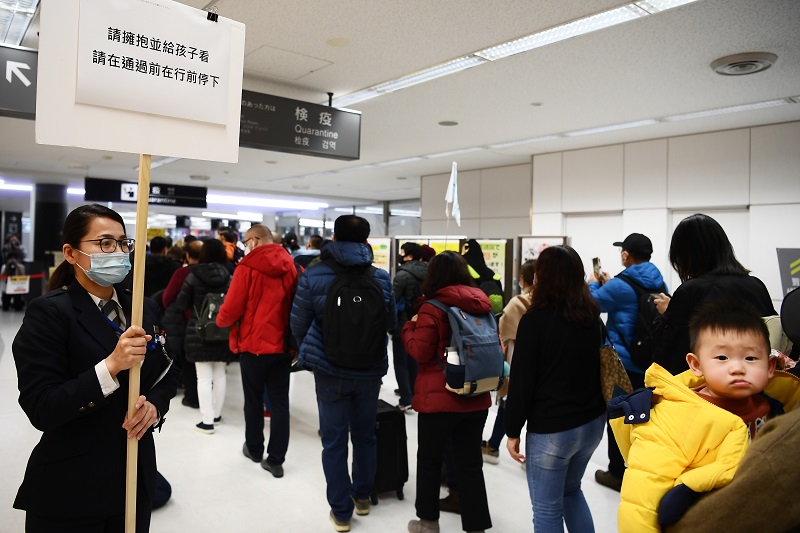
- ARAB NEWS
- 19 Apr 2024

TOKYO: Japan faces rising risks of infectious diseases being carried in from abroad, as more than 40 million people are expected to visit the country in 2020, when the Tokyo Olympics and Paralympics will be held.
While the outbreak in China of pneumonia believed to be linked to a new strain of coronavirus has emerged as a new source of concern, Japan's National Institute of Infectious Diseases has identified measles, invasive meningococcal disease (IMD), Middle East respiratory syndrome (MERS) and Enterohemorrhagic Escherichia coli infection as infectious diseases that require caution during the 2020 Tokyo Games, after studying factors such as how contagious they are and whether there is a risk of group infections.
Measles is spreading in the Philippines and other places. Japan was verified in 2015 by the World Health Organization as having achieved measles elimination but continues to see group infections due to imported cases.
In 2015, four people from Scotland and elsewhere were infected with IMD at an international scouting event in Yamaguchi Prefecture, western Japan. Another infection case was reported last year after the Rugby World Cup in Japan.
Although rare in Japan, IMD is one of the infectious diseases that people must exercise vigilance against, according to the Japanese Association for Infectious Diseases.
With the Tokyo Olympics only six months away, the Japanese government has started taking measures to deal with possible worst-case situations such as group infections during the period of the sporting events. The Olympics will run from July 24 to Aug. 9 and the Paralympics from Aug. 25 to Sept. 6.
In addition to its efforts to prevent infectious diseases from entering Japan, the government has strengthened cooperation with local governments that will host training camps for athletes before the Tokyo Games and is also getting people working for the sporting events to take measles-rubella vaccinations.
The infectious diseases association also recommends that volunteers for the games and others get seven kinds of vaccinations including against measles and Neisseria meningitidis.
In September last year, Japan's health ministry imported pathogens of Ebola hemorrhagic fever, Crimean-Congo hemorrhagic fever and other highly deadly diseases for the first time.
The pathogens are stored at a facility meeting Biosafety Level (BSL) 4 requirements under international standards to improve testing methods for such diseases.
On the pneumonia outbreak in China, a Japanese health ministry official said the government may have to take additional measures ahead of the Tokyo Games depending on how far the disease spreads.
JIJI Press